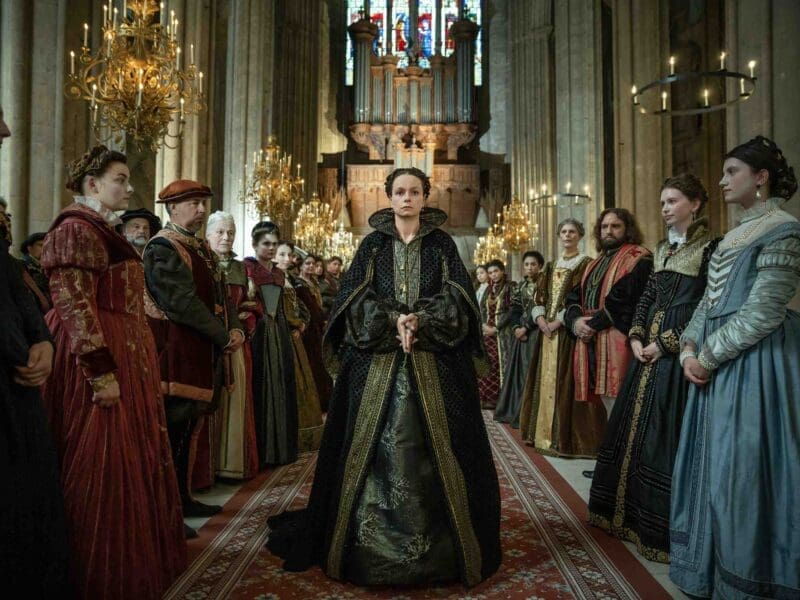
Alfie Allen joins women at the rutting edge for ‘Harlots’ S3
Harlots came back to Hulu for a third season, and we welcomed a new face. Last year saw Liv Tyler join the fold, while this season Alfie Allen (or Theon Greyjoy as we also know him) joined our favorite 18th-century TV sex workers.
When ITV and Hulu hopped into bed to produce bawdy period drama Harlots, no one knew the salacious story would grip UK and US audiences so deeply. It’s back for a third season and you need to watch it.
While Hulu’s The Handmaid’s Tale continues to open up a fresh batch of debates surrounding its feminist commentary, we think Harlots is far more effective portrayal of female oppression. The drama of Harlots centers around a brothel owner and her struggles to raise her daughters in 18th-century London.

If you like your costume dramas projected through a woman’s lens and your social commentary sprinkled with a dash of high camp, the series is a must-see. There’s more than one tart with a heart to be found in Harlots, and we want you to discover where the soapy storylines take us.
Harlots may just be the most feminist show on TV. Here are all the reasons the third season of this fantastical depiction of the historical sex industry should be high on your bingewatch list.
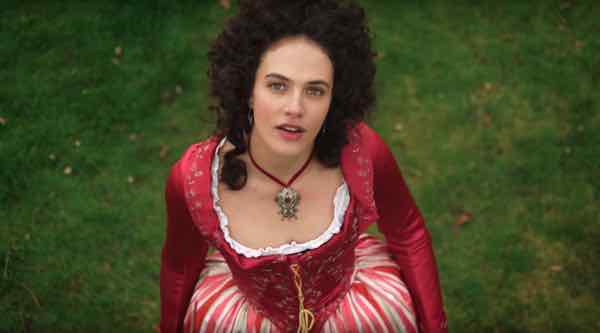
Current topics – in a period setting
Creators Moira Buffini (Byzantium) and Alison Newman (Bad Girls) have crafted a period story that addresses modern issues in a clear way. Life for women in Margaret Wells’s brothel is not easy – in fact, life for all women during this era was difficult.
Women were considered a man’s property, and the societal power they have in Harlots focuses almost exclusively around persuasion & sex. The female characters use sex for independence, but it doesn’t mean the Harlots sex workers have a life of freedom – far from it.
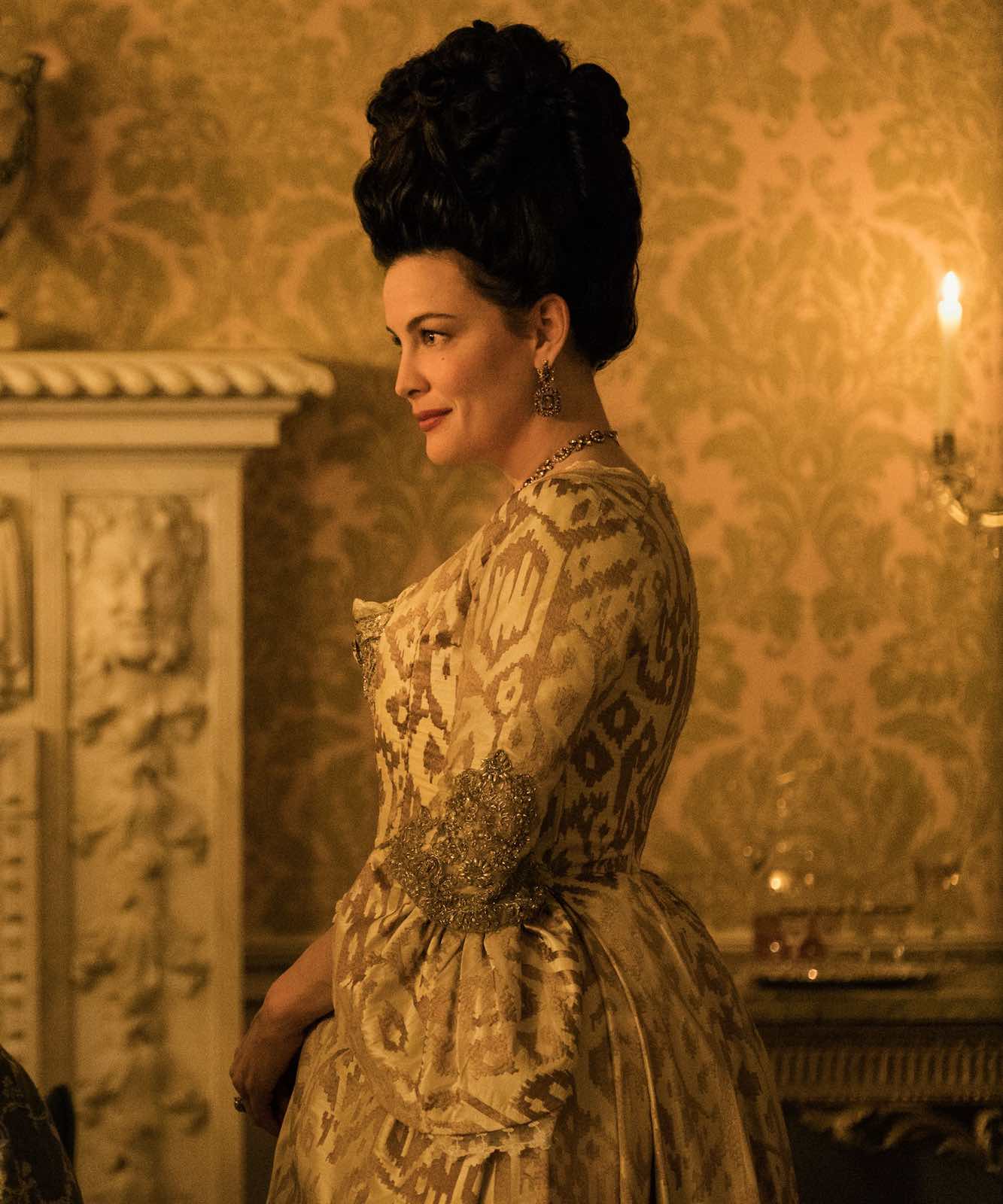
Charlotte (Jessica Brown Findlay), Margaret’s eldest daughter, worked as an extremely successful upper-class prostitute in season one. As a concubine, Charlotte has disposable income, nice clothes, and a fancy house. Yet her future is controlled by the aristocrat who wants her to assign herself to him; Charlotte’s power is enjoyed only beneath the control of this man.
“These are the kinds of issues that Harlots explores,” declared writer Lacy Baugher. “It digs into the hows and whys and dollar signs behind a life in the sex trade, rather than the act of sex itself . . . . The sex shown here is never used to titillate, nor is it meant to invoke a value judgment on any of the women involved.

“Instead, they’re all depicted as complicated and complex, a layered portrayal due almost entirely to the fact that Harlots is completely helmed by women.” We can’t help but see parallels with Charlotte’s life and the modern practice of “sugaring”.
Harlots manages to portray a different era while maintaining universal appeal. The show is based loosely on Harris’s List of Covent-Garden Ladies, essentially the 18th-century equivalent of a burn blog, written by a john who had a lot of time (and money) on his hands.
The S1 virginity auction is one of the most distasteful and talked-about plot points for modern audiences, but truth proved stranger than fiction when news broke mere days after Harlots’s premiere that an 18-year-old Romanian woman had auctioned her own virginity for over $2.5 million.
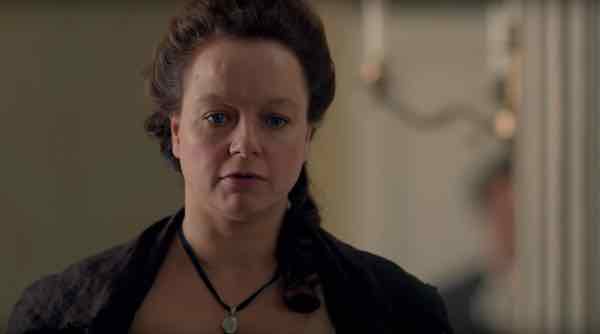
A return to past glories for Samantha Morton
We can’t help but see parallels between Harlots and a previous ITV show, Band of Gold. Both shows were written by women and produced by a female-heavy team; both shows tell the sometimes hard-to-swallow stories of prostitution; and both shows feature Samantha Morton in a lead role.
That’s where the parallels end, swapping the muted tones of the gritty streets of Yorkshire’s Bradford in Band of Gold for the cobbled lanes of 18th-century London shot in glorious, supersaturated color in Harlots.
It’s fitting that, after such a storied career, Samantha Morton should return to ITV exploring similar themes to her breakout role. Having come full circle, she now plays brothel owner Margaret Wells, whose lot in life is to protect her charges – rather than the Tracy Richards of Band of Gold, who desperately needed to be protected.
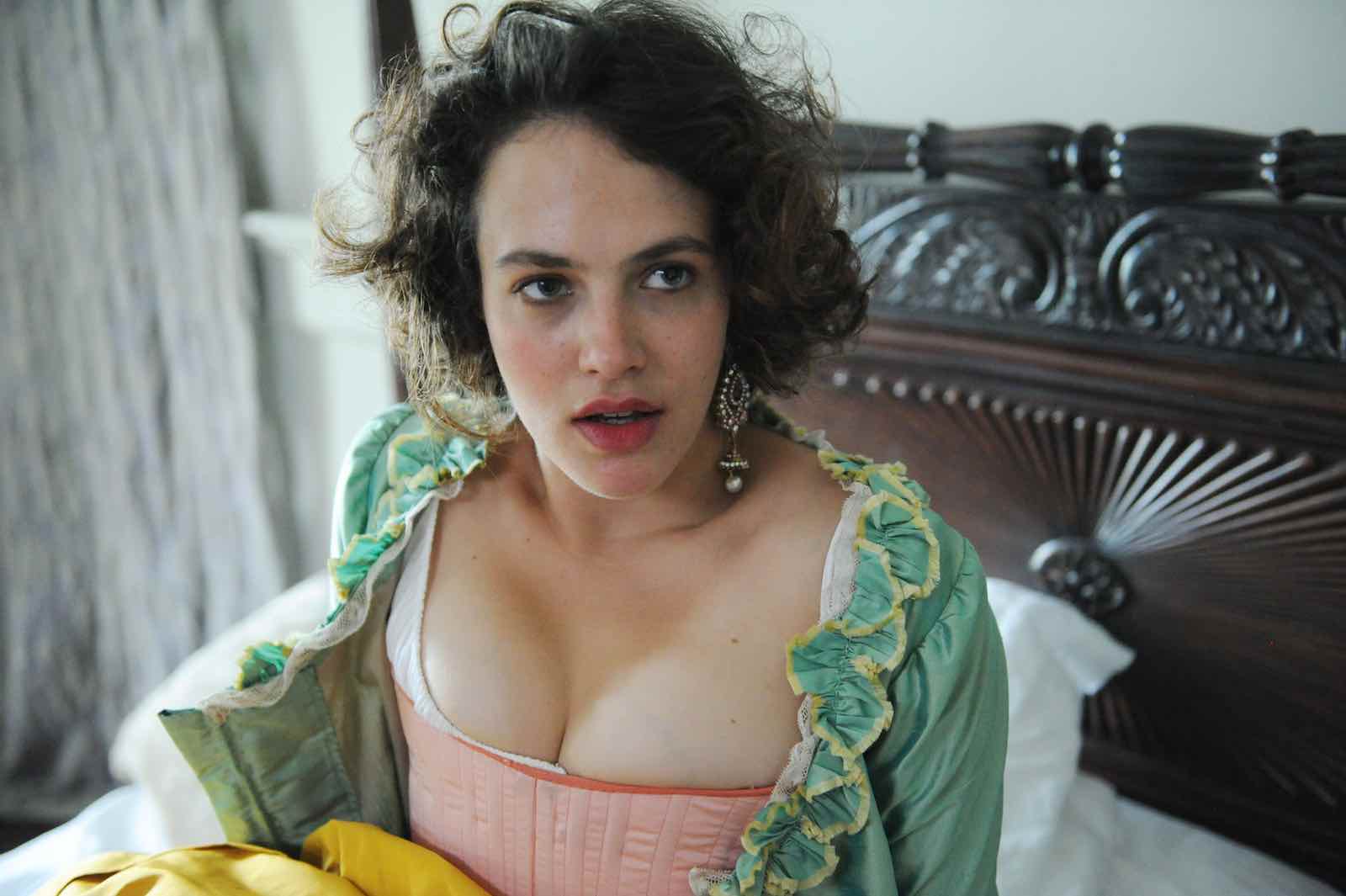
Gritty, realistic portrayal of sex & nudity
So many period dramas take advantage of the setting to offer as many soft-core storylines as possible. Game of Thrones, Rome, and The Tudors relied heavily on female nudity to draw in viewers, sometimes verging on presenting female characters as nothing more than sex dolls. Despite the fact that Harlots is a sex-industry story, full nudity and sexual scenes only occur when it serves the storyline.
Executive producer Debra Hayward (Les Misérables) told IndieWire: “One of the things that I thought was so interesting about the sex in Georgian times . . . is they didn’t really take their clothes off because it’s cold. It’s England, it’s cold. They didn’t wear underwear. They just hoisted their dresses up.
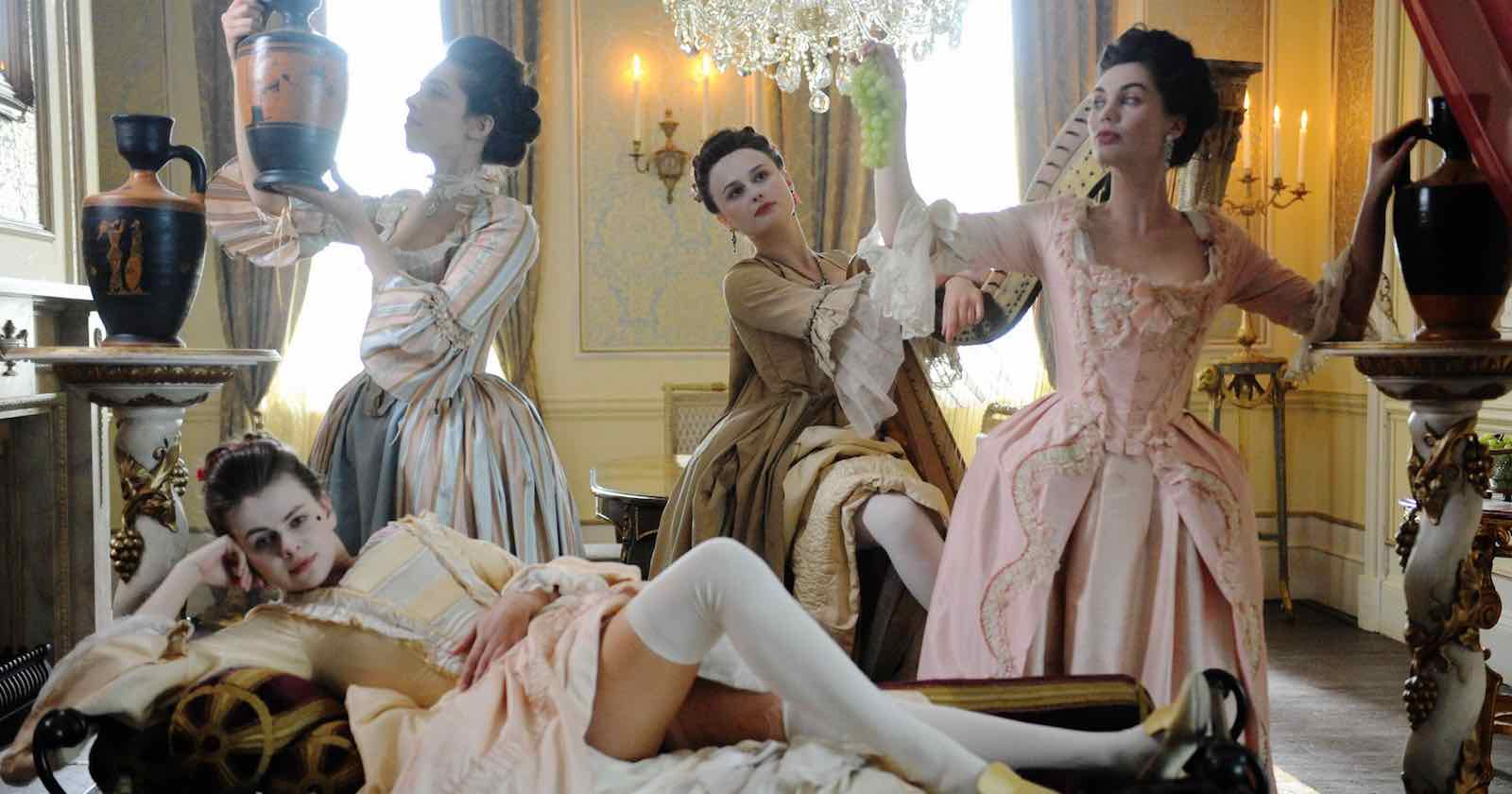
“We trod a very fine line between, ‘No one’s gonna believe us every time you see a girl screwing on screen, or a man screwing on screen, they’ve all got their bloody clothes on’ . . . It was like, we better take the clothes off a bit, otherwise people aren’t gonna believe us. They’ll think we’re being prudish.”
Harlots incorporates sex and nudity in a realistic way, while still offering TV-friendly glimpses of sex and the naked bodies of both men and women.
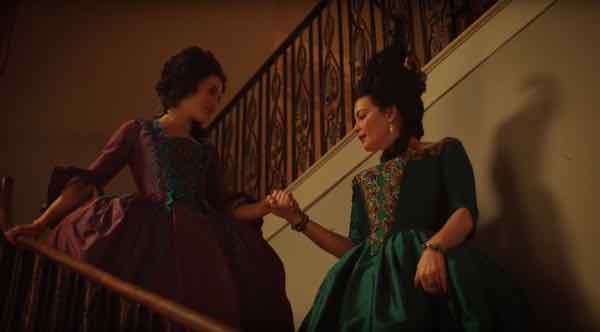
The modern soundtrack
Critics have made much of the modern choices for underscore & soundtrack, often calling them intrusive and jarring – a specious argument quickly rebutted by attempting to identify a single piece from the 1760s that could provide equivalent emotional momentum to modern audiences that the intense rock and electronic jams accompanying the violent imagery of Harlots do.
(The source music, such as the castrato art songs performed in a theater scene, are most certainly historically accurate.) This is a recent trend spearheaded most noticeably by Sofia Coppola in Marie Antoinette that, when handled with taste and foresight as in Harlots, is immensely effective.
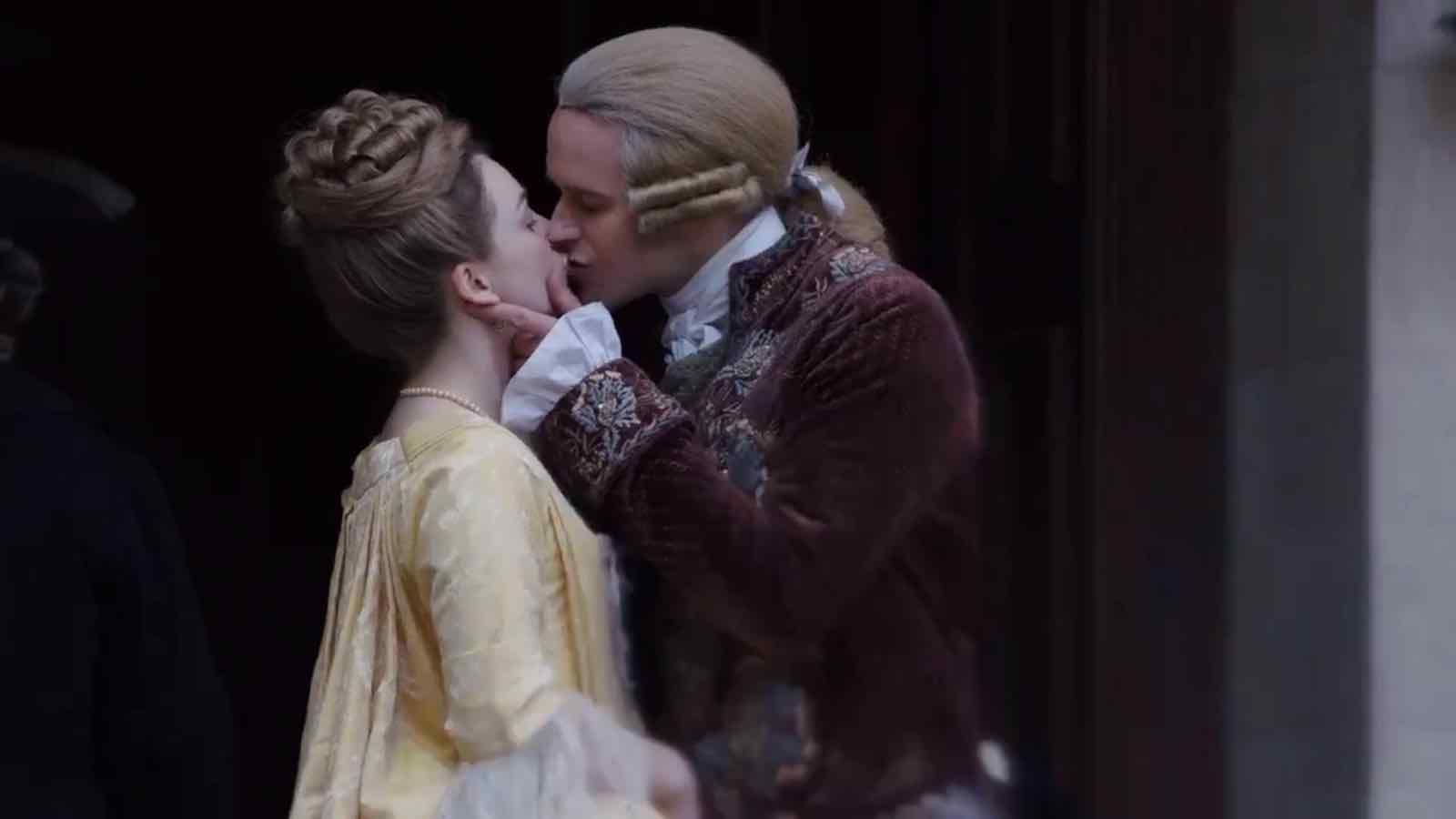
The Harlots use their bodies and minds to fight oppression
In The Handmaid’s Tale, women are forced to act as concubines; in Harlots more often than not the women elect to commodify their bodies. The sex work depicted in the latter is far from glamorous, but the fact is it was both lucrative and offered a chance of upward mobility & independence, unlike marriage.
Harlots handles dark themes with humor, something the characters often use as a tool to protect themselves. “We sort of thought, we should write about how they survived, rather than how they were oppressed,” explains Buffini. “Through writing about their survival, you sort of see all the darkness and see the way that society is set up to give them no rights.”

Avoiding the overplayed tropes associated with sex industry shows
Content based on the sex industry runs constant risk of falling into trope city: from oversexualization to catastrophizing every character’s story, to turning the sex work into an unrealistic, on-the-nose allegory on feminism. Harlots dodges all of these pitfalls with finesse, helped in part by women spearheading its creation and the temporal distance of its historical setting.
The characters approach their work in varied ways. Wells’s chief rival is Lydia Quigley (Lesley Manville) – a madam who provides education for her workers as a selling point for her own financial gain. Meanwhile, Wells encourages the individuality of her girls and leverages their personalities as a selling point.
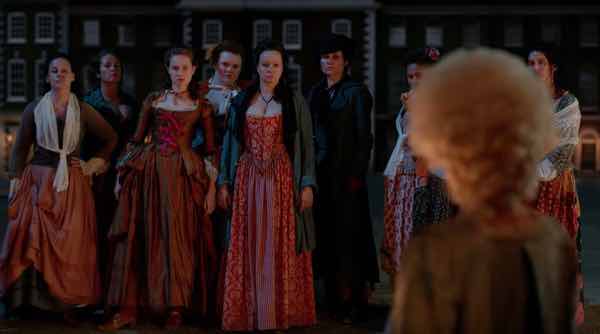
The Harlots sometimes enjoy their work; they can laugh at it – but at other times they absolutely detest it. This variety offers a rarely seen, rounded perspective on life as a sex worker so hard to come by on screen. From the whore’s-eye view, we see sex scenes that educate (or even repel), more than titillate.
Many copulation scenes ooze with comedic charm or horror – but are never placed in the narrative solely to arouse. We see these girls in a job like any other, the sex often portrayed as an annoying drop-in from pesky clients rather than something to thrill the audience.
In the case of Harlots, Buffini & Newman have found the pitch-perfect formula for period drama that’s entertaining and impactful while tackling tricky feminist issues with aplomb. Hulu has hit the huge Georgian powdered bouffant on the head.





